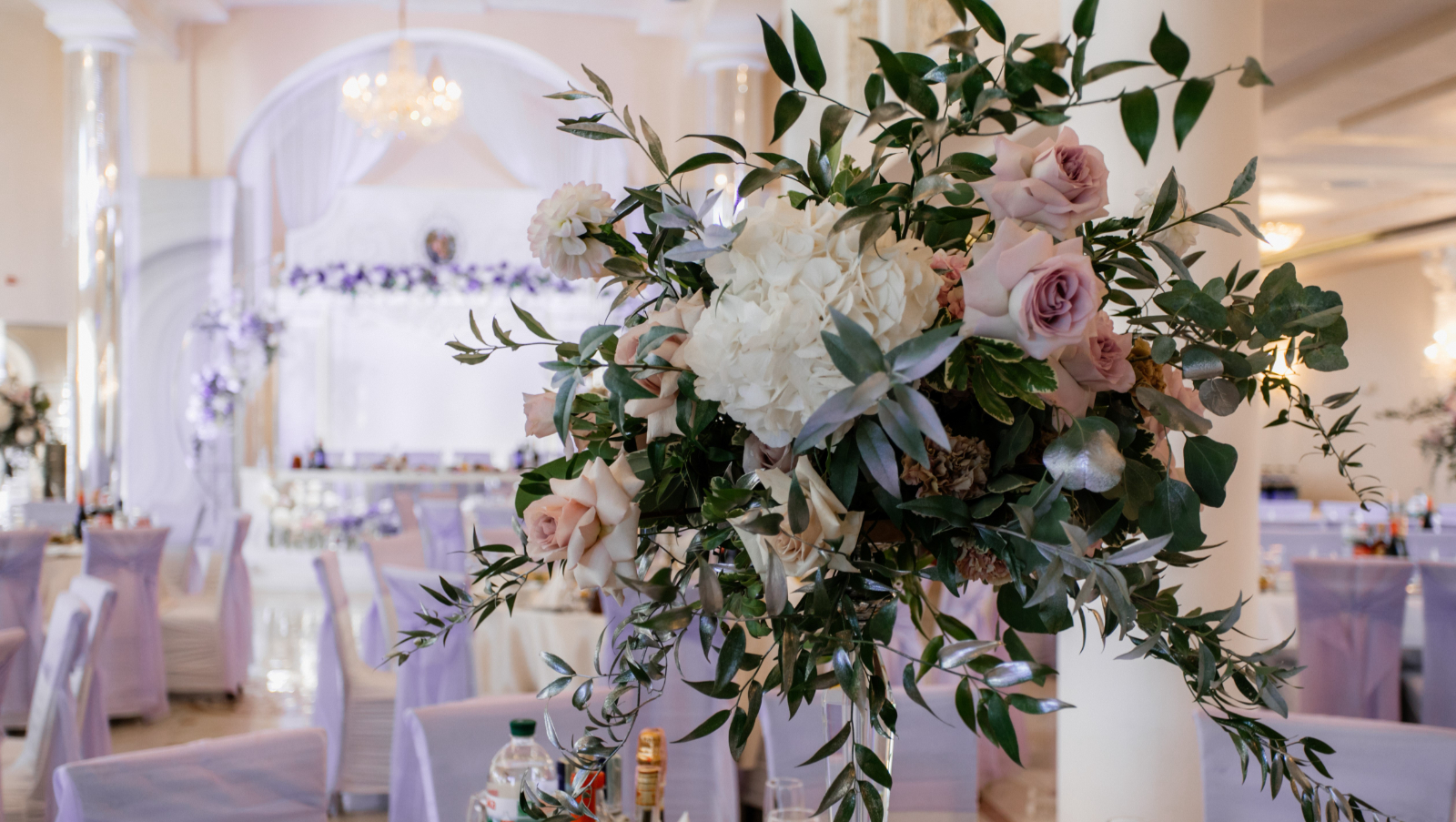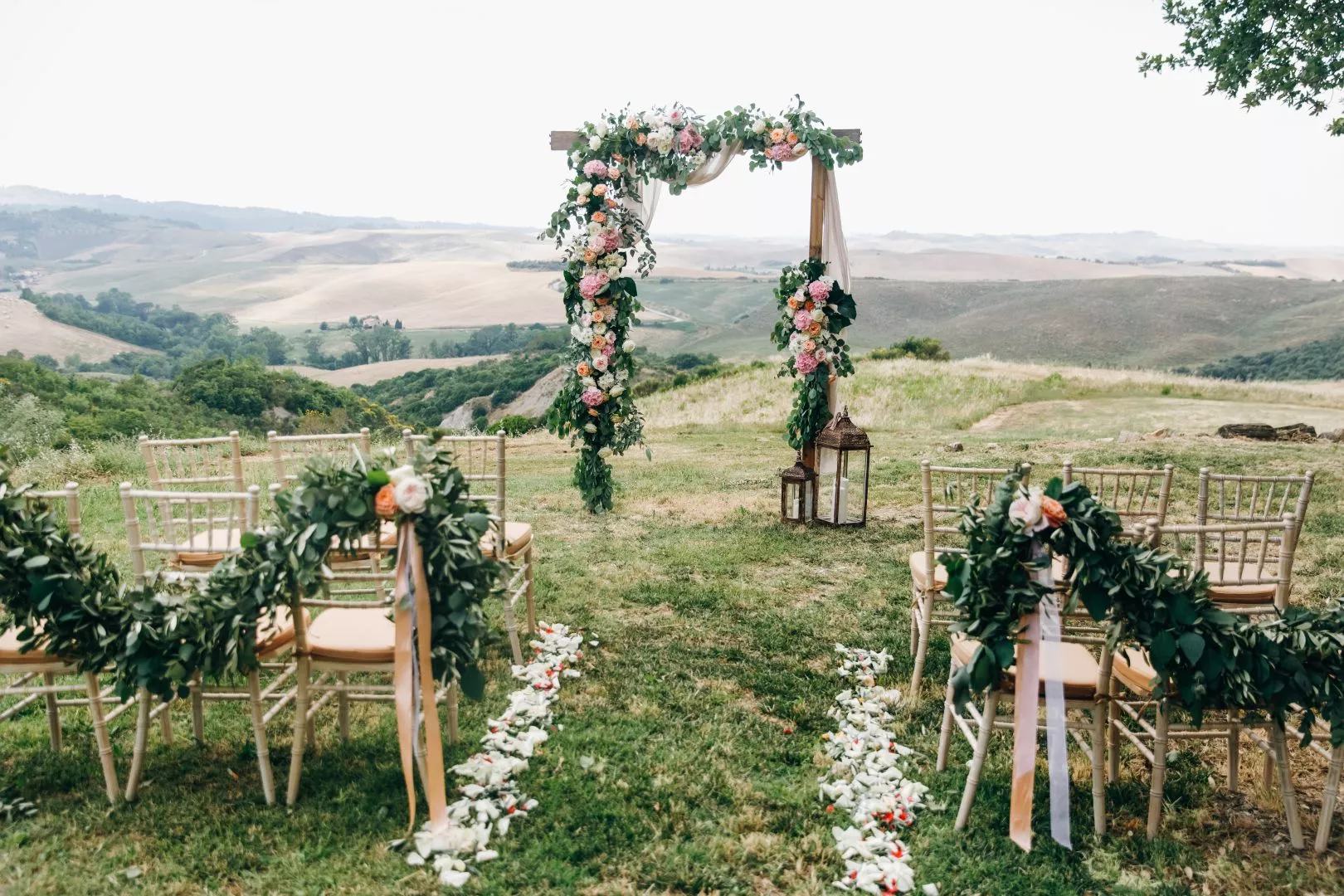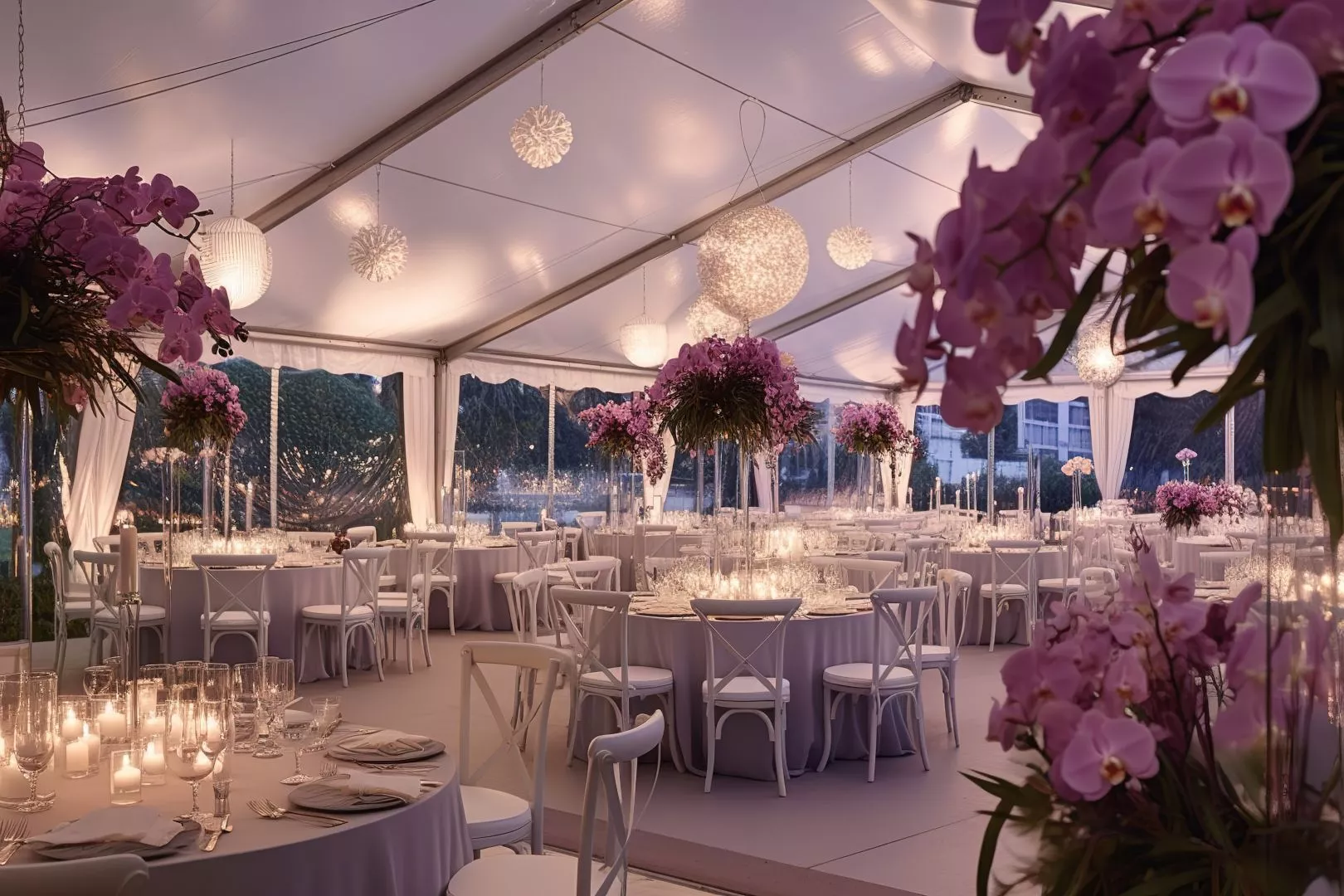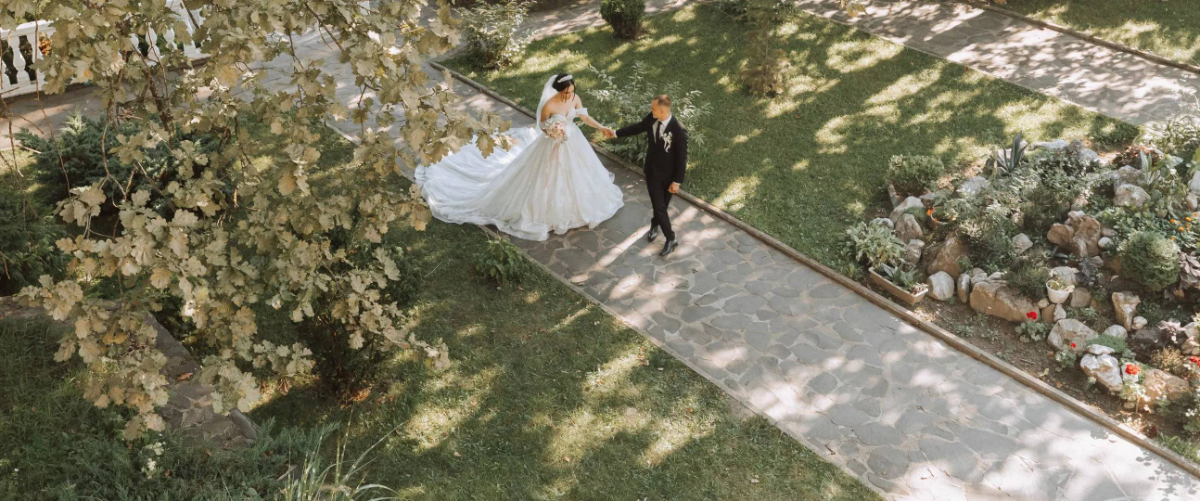Discover what happens at a non-religious wedding with our detailed overview. Learn about the ceremony structure, from personalised vows to symbolic rituals, and how couples create a meaningful celebration without religious elements.
Explore how non-religious weddings can be customised to reflect personal values and beliefs, making the day uniquely special.
What is the structure of the ceremony
Non-religious weddings offer a wide range of flexibility, allowing couples to tailor their big day to reflect their unique love story. Typically, these ceremonies may follow a loose structure, but they offer a lot of room for personal touches. First, there is an opening or welcome by the officiant who sets the tone for the ceremony. This is followed by readings or stories that the couple have chosen to share, often read by family members or close friends.
Next, the couple exchange vows that they have written themselves. These words will reflect their commitment to one another in their own words. After the vows, the rings are exchanged as symbols of their union. The ceremony usually includes music to create a personalised atmosphere, ranging from classical pieces to songs that hold special meaning for the couple.
Finally, the couple are pronounced married, followed by an iconic kiss. The ceremony concludes with the signing of the marriage register in front of witnesses, making the union legally binding. Non-religious weddings are all about creating a meaningful and memorable event that truly represents the couple getting married.
Different Types of Weddings
Wedding ceremonies come in many forms, each tailored to the varied beliefs and preferences of the couples involved. From traditional church weddings to modern beachside vows, every ceremony is unique.
Some couples opt for elaborate celebrations, while others prefer intimate gatherings. The key is personalisation, ensuring the day reflects the couple's love and commitment.
Religious Weddings
Religious weddings are conducted following specific rituals and traditions rooted in faith. These ceremonies take place in places of worship and are officiated by a religious leader.
These weddings often have a pre-set structure that must be followed.

Interfaith Ceremonies
Interfaith ceremonies blend elements from two different religions, creating a unique celebration for couples from diverse religious backgrounds.
These ceremonies often need careful planning to ensure both faiths are honoured equally. This type of ceremony ensures that both couples can continue individual practices of their faith without the need for conversion.
Civil Ceremonies
Civil ceremonies are conducted by a registrar or officiant in a non-religious setting. For example, these typically happen in a town hall, hotel, or a specially licensed venue.
They offer flexibility with readings, music, and vows, focusing on the legal aspect of marriage without any religious references.
Humanist Ceremony
Humanist weddings celebrate the union of two people based on humanist principles. This emphasises reason, compassion and the shared humanity of the couple.
Humanists UK is an association that provides inspiration and support for couples looking to create a meaningful, non-religious wedding ceremony.
Commitment Ceremony
A commitment ceremony is a celebration where couples publicly declare their love and commitment to one another without the legal binding of marriage.
These ceremonies can include many traditional wedding elements like vows and ring exchanges.
Elopement Ceremony or Minimony
Elopement ceremonies are typically small, intimate celebrations with a few guests or just the couple themselves.
A minimony is a smaller celebration that often precedes a larger event at a later date. Both types focus on the core aspects of the wedding without the larger-scale planning.

Each of these wedding types allows couples to celebrate in a way that feels true to them. From elegant black-tie affairs to laid-back beach ceremonies, each style embraces unique preferences. Couples can choose traditional church weddings, rustic barn celebrations, or even adventurous elopements for something truly special.
What needs to be included in a secular ceremony to make it legal?
For a secular ceremony to be legally binding in the UK, certain aspects must be included and followed. Firstly, the ceremony must be conducted by an authorised officiant, such as a registrar or a qualified celebrant.
Couples will need to give notice of their intention to marry at their local registry office no later than 29 days before the wedding date. The venue must be a licensed location for marriages, which can include places like town halls, hotels, and other approved sites.
During the ceremony, specific legal declarations must be made by both partners. These declarations confirm that they willingly enter into the marriage and take each other as partners.
The ceremony must be witnessed by two people who are present for the duration of the ceremony. They can then sign the marriage register along with the couple and the officiant.
After the ceremony, the marriage license is signed and entered into the official record, making the union legally binding. Remember, while the core legal elements must be present, couples have the freedom to make the rest of their non-religious wedding as personalised and meaningful as they wish.
What is the Difference Between a Humanist Celebrant & an Independent Celebrant?
When planning a non-religious wedding, couples may choose between a humanist celebrant and an independent celebrant. Understanding the differences can help in making an informed choice. A humanist celebrant conducts ceremonies based on humanist principles, emphasising equality, compassion, and reason. Humanists UK trains and accredits these celebrants to ensure they are skilled and knowledgeable.
Celebrants must craft meaningful, non-religious ceremonies that suit each couple.
Humanist weddings often include personal stories, vows, and readings that reflect the couple’s shared values and commitment to one another.
These ceremonies do not include any religious content, focusing instead on the couple’s secular beliefs and aspirations.
An independent celebrant offers more flexibility and may conduct a wide range of ceremonies, including non-religious, spiritual, or personalised rituals.

Unlike humanist celebrants, they are not necessarily affiliated with any philosophical organisation. This gives them the freedom to include a mix of elements according to the couple's preferences.
This might include some spiritual readings or customs that hold personal significance, whilst remaining non-religious. The choice between a humanist and an independent celebrant often depends on the couple's values. They must think long and hard about the type of ceremony they envision. If the ceremony needs to reflect humanist ideals, a humanist celebrant might be most suitable.
However, if the couple desires a more flexible approach, with a blend of different elements, an independent celebrant could be the better option. Both types of celebrants strive to create meaningful and personalised wedding ceremonies, celebrating the love and commitment of the couple in a non-religious context.
How to Write a Non-Religious Wedding Ceremony Script
Writing a non-religious wedding ceremony script involves creating a meaningful and personalised experience for the couple and their guests. Here are some tips to get started:
Opening Words: Begin with a warm welcome from the officiant. This sets the tone for the ceremony and makes guests feel included. Something like "Welcome, everyone. Today, we gather to celebrate the union of [Couple's Names]".
Personal Stories: Incorporate personal stories and anecdotes about the couple. This makes the ceremony unique and helps guests connect more deeply with the couple's journey.
Readings & Quotes: Choose secular readings, poems, or quotes that resonate with the couple’s beliefs and values. These can be read by family members or friends to add a personal touch.
Vows: Encourage the couple to write their own vows. These personal promises to one another make the ceremony more intimate and heartfelt.
Rings Exchange: Include a segment for the exchange of rings, explaining their significance as a symbol of their love and commitment.
Declaration & Kiss: Conclude with the pronouncement of marriage and the all-important kiss. The officiant might say, "By the power vested in me, I now pronounce you married. You may kiss your partner!"
Closing Words: End with a few closing words to congratulate the couple and invite guests to celebrate together.
By blending these elements, you’ll create a non-religious wedding ceremony that is both legally binding and deeply meaningful.
Planning a wedding near Ipswich, Colchester, or surrounding areas? Contact us to explore the charm of Priory Hall Ltd. We look forward to sharing our beautiful venue with you and creating lasting memories for your special day.
